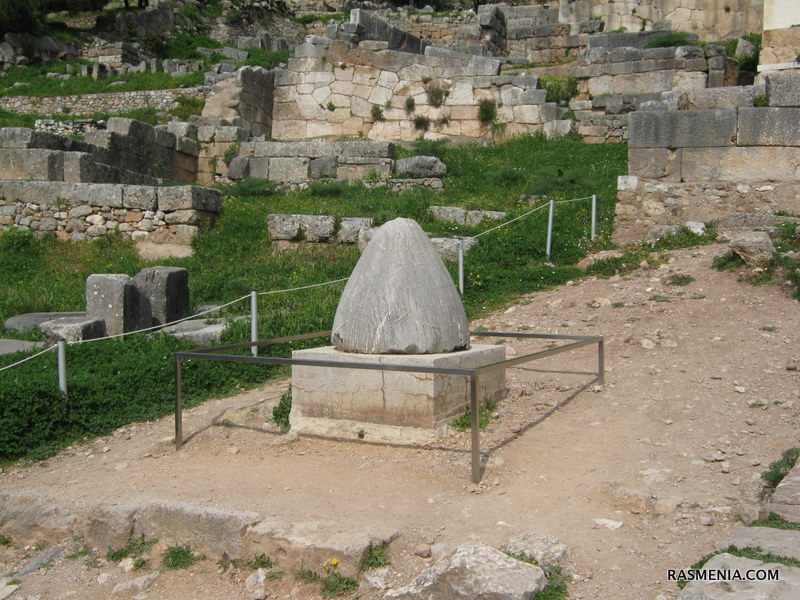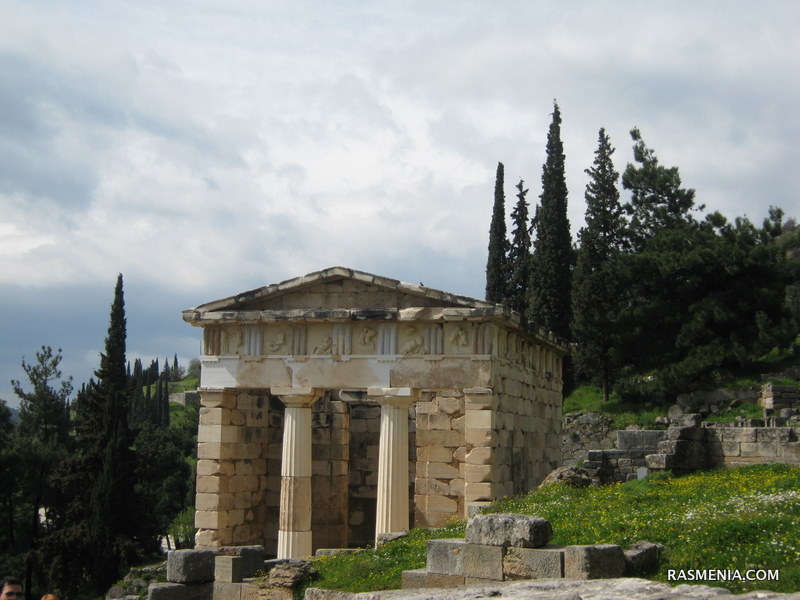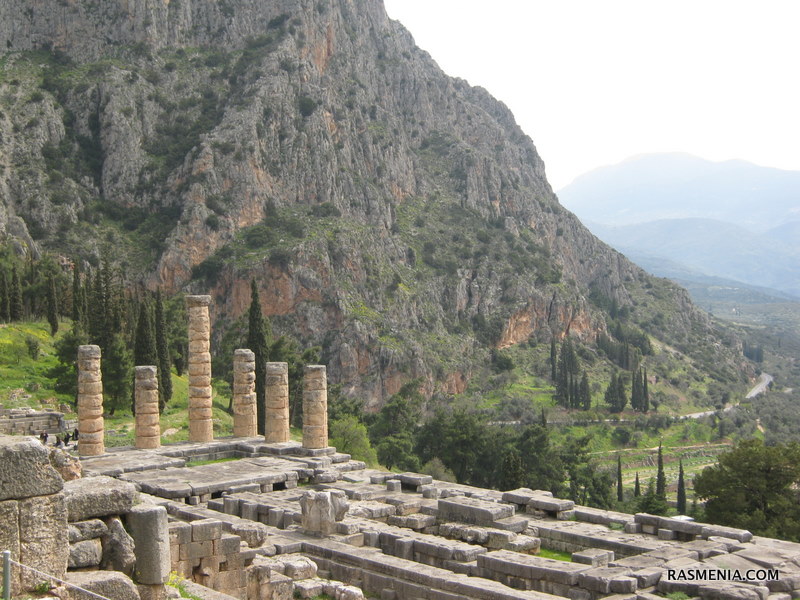We climbed aboard the bus to Delphi and took a gander at the other passengers. A few elderly couples, a few 40 or 50-somethings. A woman with her nose in a book and one couple with a little boy. All together, there was only about 20 of us in the group.
“We lucked out,” Olivier said. “The bus isn’t even half-full and there’s only one little kid, who doesn’t seem annoying.”
Me and my husband, we’re just not kid people. I watched the little boy, who leaned across the aisle toward his father and said, “Excuse me, Dad, but why are there no buses that fly?”
I nodded, satisfied. “Yeah, I think we’re good.”
The door closed. The tour guide introduced herself. It would be a 3-hour trip to Delphi, where we would see the archeological site, then the museum, then lunch.
Our guide spent the 3 hours recounting various tales from Greek history; several Greek myths relating to Apollo and to the various sites and cities that we passed on our way to Delphi.
“… then Apollo killed the dragon Python, who lived at the center of the Earth and guarded the stone – the navel of the Earth…”
“… Apollo had many lovers, one of the most famous of his lovers was the prophetess Cassandra…”
“… the Greek messenger, Pheidippides, ran for 240km to announce the victory over the Persians at the Battle of Marathon, but it was far… he was wearing all of his armor, so he got really hot and tired, then he dropped dead. That’s why we call this big race a ‘marathon,’ for this messenger who dropped dead.”
“I see some of you falling asleep. I will stop talking. After I tell you one more story…”
“Ok… just one more story, then I let you sleep.”
“… and that’s why I do not really like this movie, ‘300’.”
Of course, during these kind of touristy excursions, there is always that one big nerd, leaning forward in their seat, listening intently to every word, nodding along and commenting to the person next to them.
I should tell you that this big nerd was me. When people were falling asleep during the stories, I was offended. When someone began chatting, disrupting my listening enjoyment, I did the half-turn in my seat, with the disapproving look.
It went like this until we arrived at Delphi. Our guide showed us around the various points of interest at the site, one of which was the restored Athenian Treasury:
She took us to Omphalos – the stone that marks the “navel of the Earth.”

While continuing to entertain us with stories of Greek mythology, our guide led us to the ruins of the Temple of Apollo before leaving us to run amok on our own for an hour, at which time we would meet back up for a quick trip through the little museum.
Our guide zoomed us through the Delphi Museum. It’s now a rapidly spinning blur of ancient statues, myths and camera clicks.
The bus then took us to a nearby hotel where lunch was waiting for us. Seating was limited to just a few tables in the corner of the dining room, so everyone had lunch with single-serving friends. Luckily, we ended up with a cool couple from Santa Barbara. Like the trip through the museum, food arrived quickly – a little too quickly. We were still eating when the waiters brought each of us an orange. Our guide announced, “Ok! Have your dessert, visit the bathroom and back on the bus in 10 minutes.”
All around us, tourists were peeling fruit and running off to the bathroom; shoving orange wedges into their face and entire oranges into their pockets and bags.
Before we knew it, we were on our way back to Athens. Everyone fell victim to that after-lunch sleepiness, which was only made worse by the hum of the bus. Even our guide, who had been so talkative, began to quiet down. For most of the 3-hour return trip, it was nap time.
The passengers stirred as we approached Athens. As we all came back to life, our guide began to speak once again. We rode past the Athens Olympic Stadium, which was built for the 2004 Summer Olympic games.
“… and we built many, many things for these games… things that cost so much money to our country…”
“… these games had nothing to do with the Olympic tradition, when all countries at war would stop fighting, making peace during the games. Now the fighting continues and no one remembers these glorious games of the past…”
“… so much money was spent, now we are very disappointed, in a terrible debt… in a terrible crisis…”
The tone had taken a somber turn. All the passengers were silent. No more noses in books, no more chatting with neighbors. Just a mostly empty bus of American tourists, sitting motionless.
Our bus slowed down as we approached a toll area, where several people were assembled, holding up picket signs. Since Olivier and I don’t speak or read Greek, we had no idea why these people were striking.
“… there is often people on strike because they are disappointed with the government right now. I don’t blame them.”
“Our Prime Minister George Papandreou has raised our retirement age so many of us are very angry about this…”
“… so that is why we sometimes have problems with our neighbors in Turkey, though it is calm now…”
“… and we have spent money for weapons… we have been good clients when it comes to buying some weapons…”
Olivier and I looked at one another. “Wow,” he said, “these people are angry.”
“Well, sure,” I said. “They have every right to be.” I looked around at the other Americans, looking awkward and uncomfortable. We’re just not used to this kind of thing. If some tour guide at Disneyland, or one of our national parks started going off on a tirade about the government, or spouting opinions on international conflicts, there would likely be a complaint and that tour guide would probably lose their job.
As I looked around, I did laugh a little bit. Not at the tour guide, but at all of the uncomfortable tourists, squirming in their seats. A (literally) captive audience, getting first-hand information on what it’s really like for other people in far away places.
It’s a pity that more guided tours aren’t like this.


I envy you that trip. A Ride to somewhere fascinating with someone who knows whathe is talking about and no disturbing companions.
In the last coupe of days, stories have come out of Greece that thy may leave the eurozone. This is exactly what they should do, so they probably won’t.